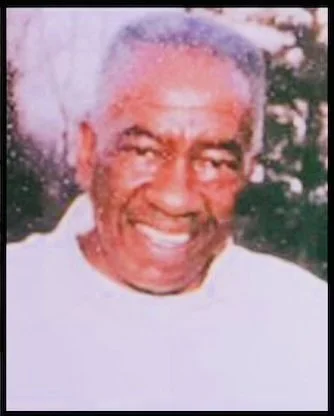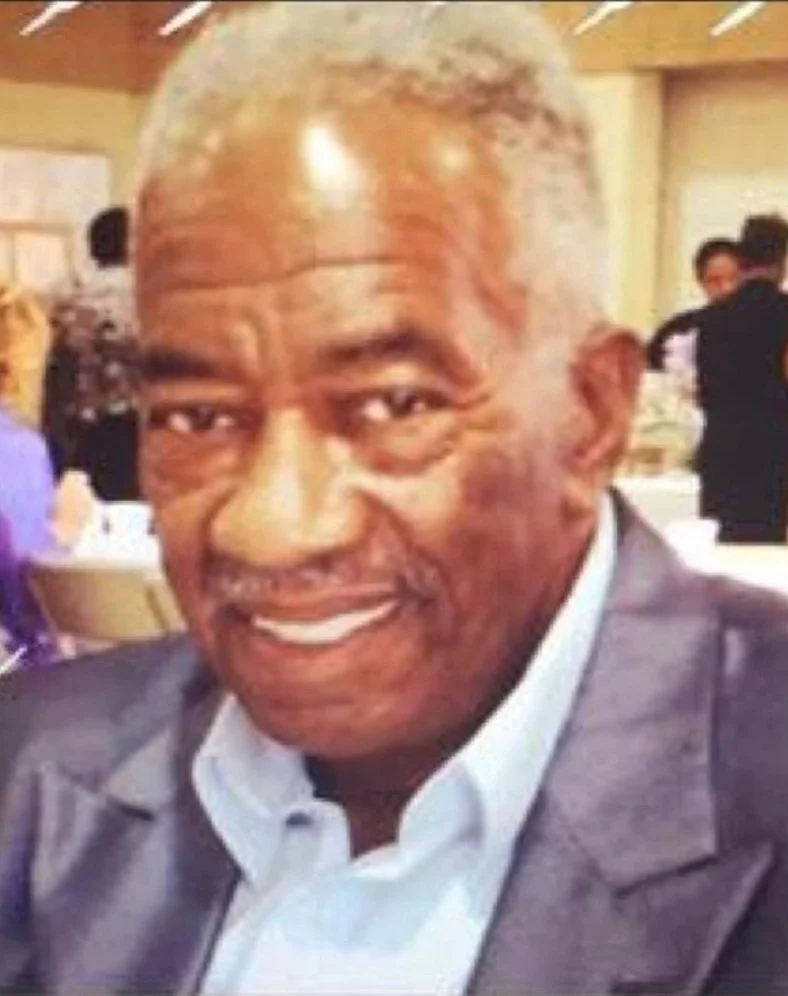James Tolbert: voice of the community
Ed. note: This installment continues the story begun last month of James Tolbert, WBYE radio host for over four decades, as told by his daughter Angela Denise Nathan. Additional excerpts not included in the print versions of this story are highlighted in brown boxes.
“Who knows but, that on the lower frequencies, I speak for you.”
A beloved radio host, James Tolbert used the airwaves to uplift and amplify the voices of many within the greater Montevallo community: Gospel singers, choirs, community leaders, memorable preachers. His own familiar voice was a source of strength in the Black community during times both joyous and tragic.
To a rapt audience of radio listeners he brought his love of gospel music. Angela recalls that at his death he owned some 40,000 CDs -- gospel and more. The collection included Country Boy Eddy, who had a huge following in Alabama. He performed every year at Blue Circle Cement where Tolbert worked. He treated his listeners to recordings of sermons of new and older preachers. He also invited preachers to come on his program live. Angela and her sisters would sometimes sing live from the sound room, with Angela playing the piano her father had somehow wrangled.
At the age of ten Angela started playing piano for Rev. Albert L. Jones's church. When he asked her to be his musician, she was scared. "Rev. Jones I can't play. He said, well I can't preach. We'll learn together."
He even introduced new choirs live. He would "put them in the sound room, some of them couldn't even fit in the sound room. And he would turn that microphone on and would say, 'We got this choir and they comin' to us live, and I want you all in radioland to put your big hands together." At this point he would give a shout out to one of the sponsors.
Chuckling, Angela recalls that her father couldn't pronounce the name of one, Piggly Wiggly. It always came out "Piggy Wiggy.'" Amused by the memory, she laughs broadly and then continues in her father's voice: "'And I want all of you out there to go shopping at Piggy Wiggy as I bring on this new choir.' And my mom would freak out every time."
He brought folks on air to talk on community issues, including one close to Angela's heart, domestic violence. NAACP representatives were invited to speak. George Dailey, Montevallo's first Black councilman and first county commissioner, used WBYE to get his message out. He would ask, what can you do for my children and for the generation of children to come that wasn't done for your children and grandchildren?
During the struggle for civil rights, Tolbert was one of a group of activist leaders advocating for rights in Montevallo. Much of the organizing went on face-to-face within traditional centers of Black culture and life, the churches and the hall of the local Prince Hall Masons.
Tolbert's position was unique. He commanded the air waves. His voice went out to the entire community at one time. He used his access to spread messages of hope and encouragement that uplifted two generations of listeners. But there were times when he was called to minister to the troubles of the community. This too is an important part of his legacy.
Around 1980, a Black police officer, who served in the Montevallo police force, died under suspicious circumstances. The Black community was hurting, badly.
Angela, seventeen or eighteen at the time, remembers it vividly. The distress, the outrage, the involvement of the Eastern Star Masons and the Suburban League and the NAACP. No one knew what to do or say.
James Tolbert knew what to say.
"He did talk about it on the radio, but this is how he got around it. He knew what he was talking about. The Black community knew what he was talking about. But nobody else did. He said we had a tragedy among us. And the tragedy is, we can't even discuss it. Because we have our children. We have our wives. We have our family members. I need for everybody to go home and make sure your loved one is safe and happy and taken care of. And that's all Brother J. T. is going to say about this subject."
His words brought some calm to a community in turmoil. "It was like he put a fire out," Angela recalls. "You knew something was brewing. Even at church you knew something was going on. But Daddy felt like he was a fireman who could put something out. . . . He did not want a cycle to repeat itself. Somebody's gotta be the one to say: this has got to stop."
Her father was preoccupied with keeping her safe. When she was learning to drive he insisted that she take the longer but safer route to Alabaster, avoiding Pea Ridge. "The Klans rode in those days," she recalls. He wanted her always to follow the same route. "If you turn up missing I'll know where to start."
Angela, with her gift for music, found her own way to carry forward her father's voice. She founded and still leads a community choir that performs a song written by him, "Fight on Christians." At its height, the Montevallo Community Choir boasted over 100 singers, ages three to twenty, from all over central Alabama. Tolbert arranged for them to open at Boutwell Auditorium for Shirley Caesar and Charles Hays and the Cosmopolitan Church of God in Christ -- performers with a huge gospel following. They also performed in Montevallo's Strand Theater on Main Street in uniforms handsewn by Montevallo family members.
Ethel Mae Thompson and her daughter Bernita Houser made sure that everyone in the choir had a uniform they could afford. They sewed red dresses for the girls and bow ties for boys to wear with white shirts. Later they hand-made robes for all the choir members.
The legacy of James Tolbert transcends generations. It lives today in words that, as Angela puts it, "marinate the spirit" and in the gospel music that continues to bring the community together.
Our great thanks to Angela Nathan for sharing her remembrances of her father. Do you have remembrances to share? Contact us at MontevalloLegacy@gmail.com.



